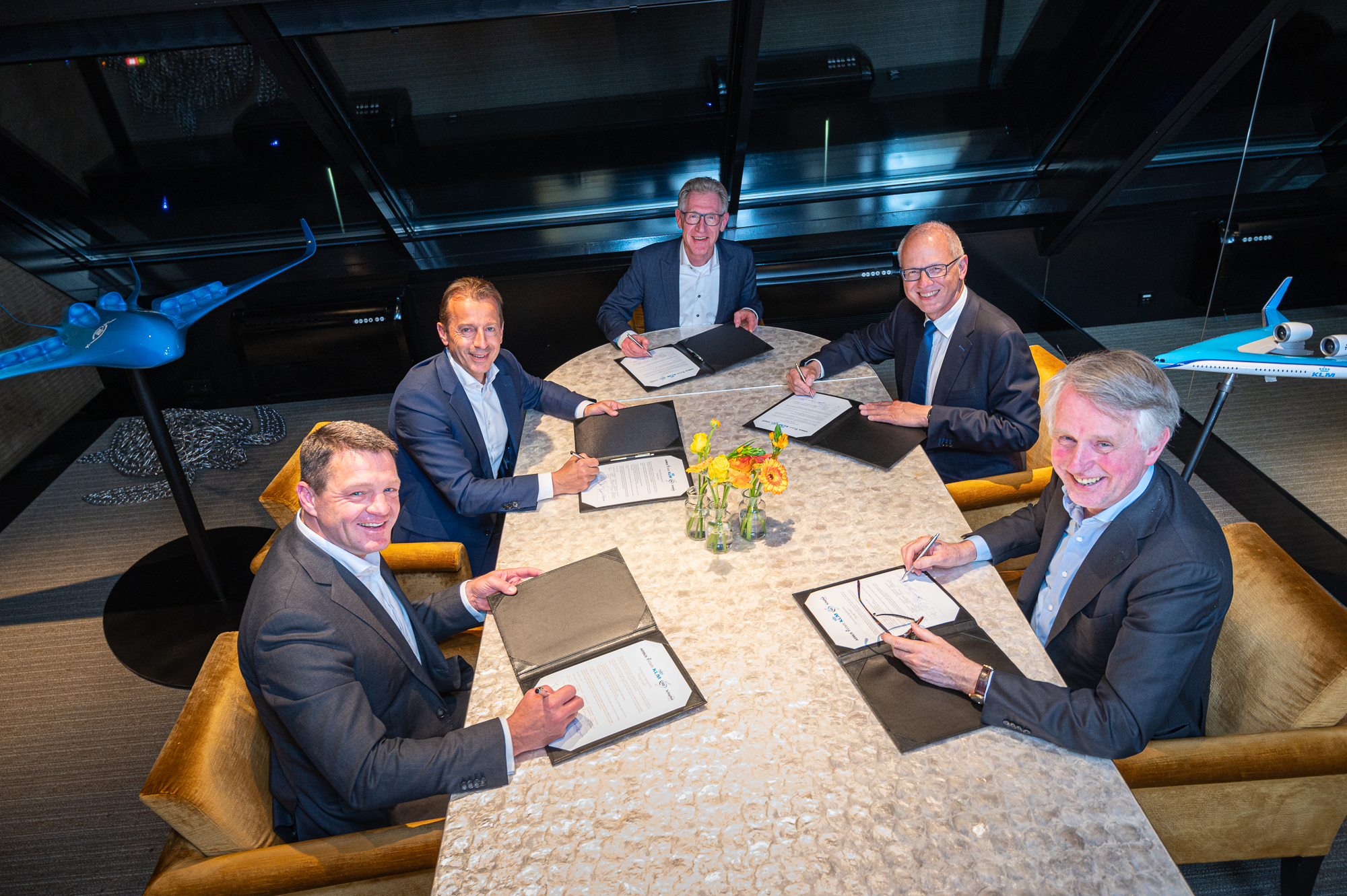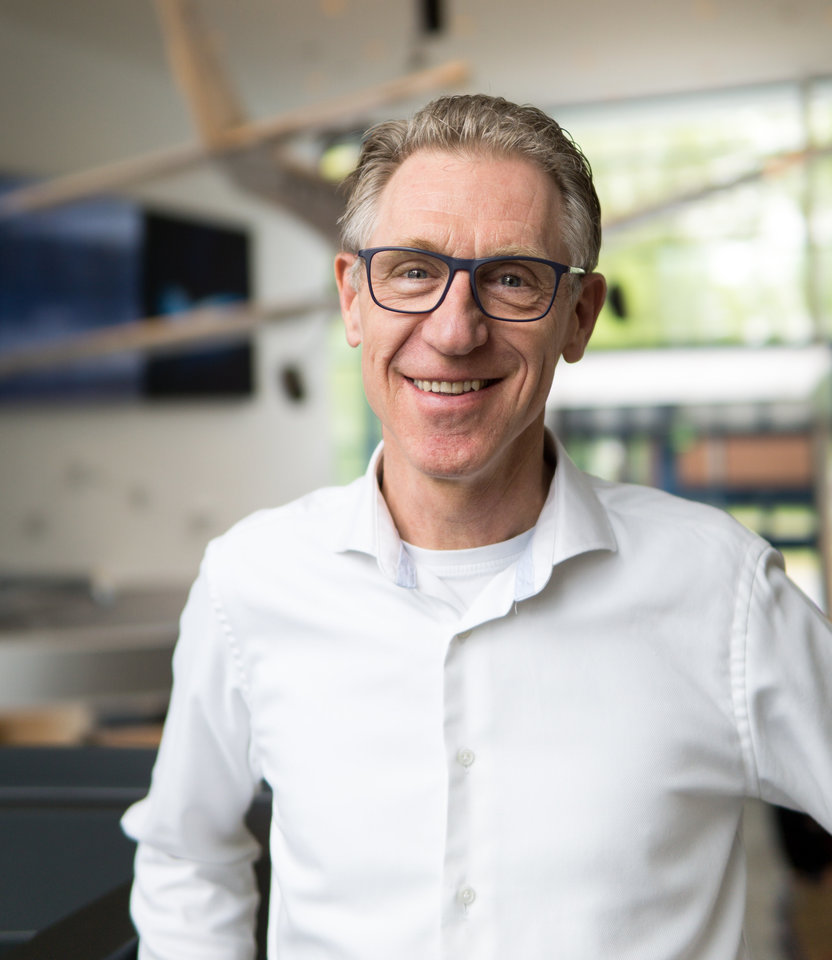Top players in the aviation sector and TU Delft aim to accelerate transition to sustainable aviation
KLM Royal Dutch Airlines, Royal Schiphol Group, Airbus, Royal NLR and TU Delft are entering into a close co-operation to develop the technology needed for climate-neutral flights in 2050. To mark the start of the Flying Vision joint initiative, the five parties signed a partnership agreement on Monday evening, 11 April.
Climate change is a reality. Although aviation makes a major contribution to the welfare and well-being of people all over the world, it also contributes to climate change. If no action is taken, this contribution will increase exponentially. If we are to realise the international ambition of fully climate-neutral aviation by 2050, more radical changes must be implemented at an accelerated pace. Tim van der Hagen, chair of the Executive Board of TU Delft: ‘We believe that climate-neutral aviation is possible in 2050.
But for this ambition to succeed, collaboration between academia, knowledge institutions, industry and government is crucial. Together we can develop the technological solutions for sustainable aviation. This collaboration with top players from the aviation sector can serve as a pressure cooker for innovations aimed at accelerating the transition to sustainable aviation’.
Open and innovative
The Flying Vision initiative aims to develop an open and innovative ecosystem. This means that the parties involved will openly share technological breakthroughs and new knowledge and that everyone who wishes to contribute to making aviation sustainable is welcome to join.
The co-operation will focus on the following: the development of new types of aeroplanes that are very energy-efficient, the utilisation of 100% renewable energy, climate-neutral logistic operations in the aviation sector, the implications of sustainable aviation for passengers, and related matters. Encouraging entrepreneurship and training new talent are also important building blocks.
Holistic approach and a physical meeting place
As the five founders of Flying Vision complement each other and each represent a specific component of the aviation chain, it will be possible to not only search for partial solutions but also for integrated solutions for the entire aviation sector. For example, the transition to renewable energy sources is a challenge that impacts the entire chain and that can therefore be tackled more quickly in collaboration between all the parties. This approach emphasises the sharing of and shared development of knowledge and will accelerate the innovation process. This holistic method of co-operation is still unique in the sector.
In order to further promote the co-operation, TU Delft intends to create a physical work and meeting place on its campus where students, researchers, start-ups, and company R&D employees can meet each other. This location is expected to open its doors at the end of 2022.
New generation of aviation experts
Knowledge institutions such as TU Delft and NLR have an important role to play in making aviation sustainable. In addition to collaborating with NLR to contribute the newest scientific knowledge available, TU Delft is also responsible for training the talent of the future. So the Flying Vision initiative will serve not only as a hotbed for start-ups and technological breakthroughs but also for the new generation of aviation experts.
More information
More about our vision on sustainable aviation is available on our website.
For questions about Flying Vision please contact:
- Karlijn Spoor, Press officer TU Delft - k.spoor@tudelft.nl / 06-41612272
- Henri Werij, Dean Faculty of Aerospace Engineering TU Delft - H.G.C.Werij@tudelft.nl
Enroll today for our online course on sustainable aviation: Sustainable Aviation: The Route to Climate-Neutral Aviation.

